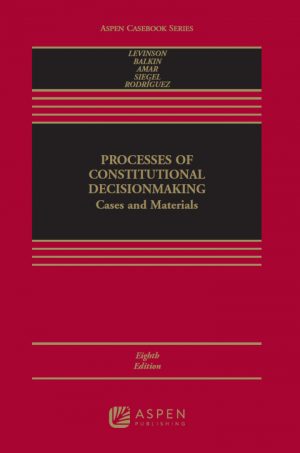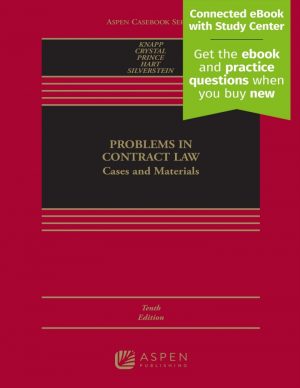A Practical Approach to Effective Litigation 8th Edition
$52.00
Attention: This is just ebook, Access Codes or any other Supplements excluded! / File Delivery: Sent Via Email within 24 hours!
SKU: ef0a9a661454
Category: Law Textbooks
Description
-
Author(s)Susan Blake
-
PublisherOUP Oxford
-
FormatPDF
-
Print ISBN
9780198715948, 0198715943 -
eText ISBN
9780198715948, 0198715943 -
Edition8th
-
Copyright
- Details
This book analyses the key skills that a lawyer needs to handle a case effectively, a topic that is not covered coherently in any other book. At a time of rapid and wide-ranging change in the delivery of legal services, the current edition involves a complete reworking of the last edition to take into account the implications of the implementation of the Jackson Review, and to see effective litigation clearly in the context of concerns about funding, case management by the court, costs, and the growing use of alternative dispute resolution. The book has a strong focus on the needs of the legal practitioner, the decisions to be taken at each stage of a case, and the criteria to apply in making those decisions. This is all securely based in references to relevant Civil Procedure Rules and decided cases, with checklists and commentary to assist in the project management of a case. The book also focuses on the skills a lawyer needs to work effectively. This includes skills in dealing with a client, drafting legal documents, and presenting a case in court. Throughout the work the emphasis is on demonstrating how to use law effectively, how to develop a case, and how to present persuasive arguments. Lawyers operate in an increasingly complex environment, faced with challenges in funding a case, in managing a case to avoid sanctions, and in using complex rules to best effect. The author addresses the use of legal knowledge and skills within this rapidly changing context, bearing in mind not least that the pace of change is likely to continue with the developing use of IT, and the widening use of alternative business structures. In putting together skills and law in a fully up-to-date context, A Practical Approach to Effective Litigation brings together the sound knowledge of the law and the legal skills an experienced litigator will use to get the best results for clients in a real-world context. It will be of use to anyone in the early years of legal practice, experienced solicitors who have had limited involvement with civil litigation, and those training to be a barrister or solicitor.
Related products
-

Examples & Explanations for The Law of Torts 6th Edition
Rated 0 out of 5$29.90 Add to cart -

Processes of Constitutional Decisionmaking 8th Edition Cases and Materials
Rated 0 out of 5$89.90 Add to cart -

Problems in Contract Law 10th Edition Cases and Materials
Rated 0 out of 5$75.90 Add to cart -

Constitutional Law 7th Edition Principles and Polices
Rated 0 out of 5$39.90 Add to cart

